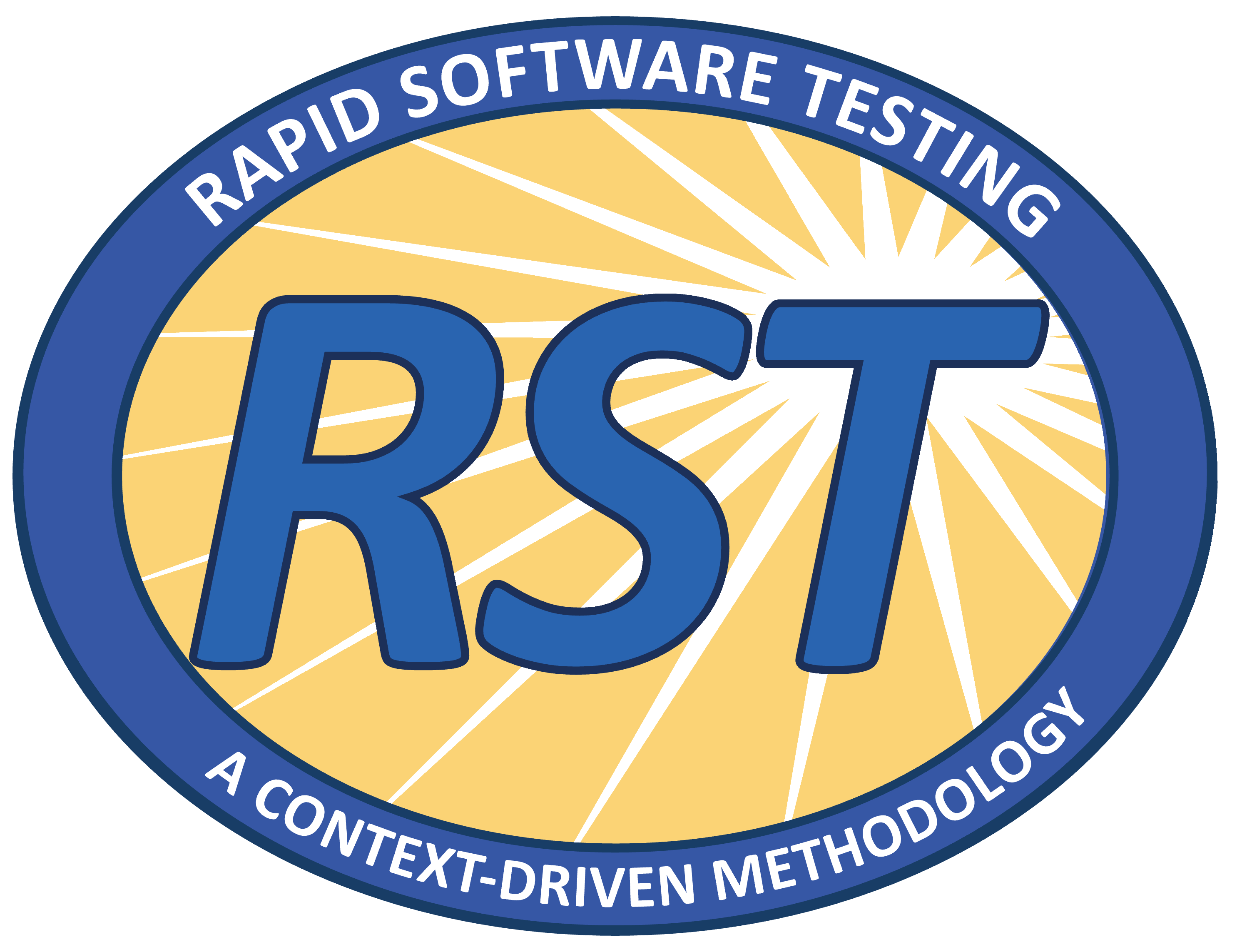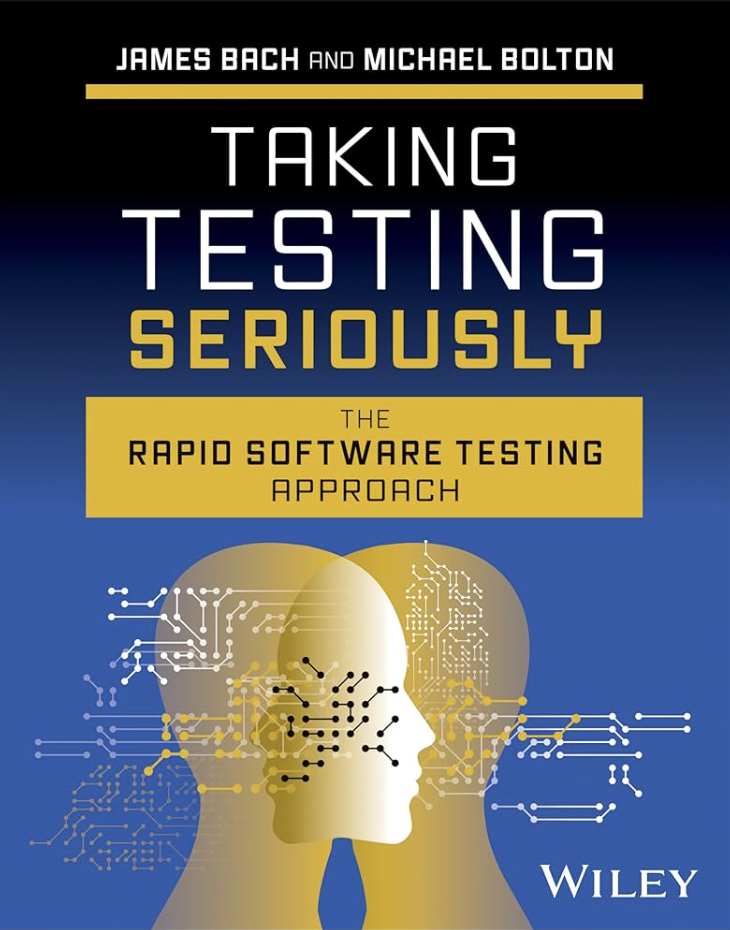Rapid software testing
Because testing (and any engineering activity) is a solution to a very difficult problem, it must be tailored to the context of the project; and therefore, testing is a human activity that requires a great deal of skill to do well. That’s why we must study it seriously. We must practice our craft. Context-driven testers strive to become the Jedi Knights of testing. -- James Bach
What is Rapid Software Testing?
 Why do we test? We test to develop a comprehensive understanding of the product and the risks around it. We test to find problems that threaten the value of the product, or that threaten the on-time, successful completion of any kind of development work. We test to help the business, managers, and developers decide whether the product they’ve got is the product they want.
Why do we test? We test to develop a comprehensive understanding of the product and the risks around it. We test to find problems that threaten the value of the product, or that threaten the on-time, successful completion of any kind of development work. We test to help the business, managers, and developers decide whether the product they’ve got is the product they want.
Above all, we test because it is the responsible thing to do. We have a duty of care toward our teams, our organizations, our customers, and society itself. Releasing poorly tested software would be a breach of that duty.
Rapid Software Testing (RST) is all about that. It is a responsible approach to software testing, centered around people who do testing and people who need it done. It is a methodology (in the sense of “a system of methods”) that embraces tools (aka “automation”) but emphasizes the role of skilled technical personnel who guide and drive the process.
The essence of this methodology lies in its humanism (we foster responsibility and resilience by putting the methodology under the control of each practitioner), its ontology (how we organize and define the various priorities, ideas, activities, and other elements of testing), and its heuristics (fallible methods of solving a problem). In RST, we’re not afraid of learning, applying, and discussing words like “ontology” or “heuristics”. For us, words are important tools we use to help us develop our expertise and to describe and explain our work.
Rather than being a set of templates and rules, RST is a mindset and a skill set. It is a way to understand testing; it is a set of things a tester knows how to do; and it includes approaches to effective leadership in testing.
RST is strongly influenced by the approach to engineering and science promoted in the works of Gerald M. Weinberg, Cem Kaner, and Billy Vaughan Koen, as well as sociologist Harry Collins, family therapist Virginia Satir, and Nobel laureates Herbert Simon, Richard Feynman, and Daniel Kahneman. If you admire their work, you will find much that resonates in the methodology and classroom experiences that we provide.
RST is also based on and related to Lessons Learned in Software Testing: A Context-Driven Approach, by Cem Kaner, James Bach, and Bret Pettichord as well as the self-education and independent thinking approach to life depicted in James’ book, Secrets of a Buccaneer-Scholar
Source: Rapid Software Testing website
The Book
 Finally there is a book! It is called “Taking testing seriously! The Rapid Software Testing approach”. It is a MUST READ for everybody who is serious about becoming an excellent tester.
Finally there is a book! It is called “Taking testing seriously! The Rapid Software Testing approach”. It is a MUST READ for everybody who is serious about becoming an excellent tester.
This journey started in Early 2021 when my dear friend Marius A. Frâncu and I initiated an RST community book project. We invited friends and practitioners of Rapid Software Testing to contribute and asked James and Michael Bolton write a chapter about the RST approach. One chapter became two, then three… and eventually seven! It grew into a comprehensive and passionate deep dive into the context-driven testing philosophy that is so close to my heart. I’ve had the pleasure of closely collaborating with James, Michael and many others to get this book over the finish line. What a ride and what a joy to work with them. I’m incredibly proud that this book will soon (November 2025) be available for everyone to read. I’m curious to hear what the community thinks and I look forward to rich conversations on how we can all take testing more seriously.
In the book are several contributions from my site:
- I co-wrote the Strategy Chapter with James, Michael and Lalitkumar Bhamare
- I co-wrote the chapter on how to account for your work with James, Michael, Jon Bach, and Aaron Hodder
- I co-wrote a chapter on Deliberate Practice of Testing Skills with Ruud Cox and Joris Meerts
- I wrote my own chapter on how I became RST instructor
I also and reviewed many chapters and participated in writing sessions with James, Michael, Marius, and others.
James wrote about the book on Linkedin:
You can (pre-)order the book here on Amazon
Reading List (part of great resources)
When I teach Rapid Software Testing, I always provide a reading list: an overview of valuable resources participants can explore if they want more (and diverse) information on specific topics. I used to send this list by email, but I’ve now integrated it into my public Great Resources list. This curated collection of links to testing and quality-related resources is something I’ve been maintaining for many years. It has consistently been the most popular part of my website.